The Strange and Surprizing Adventures of Robinson Crusoe of York, Mariner is the full title of the novel that made Daniel Defoe famous. It was published in April 1719 and proved such an instant success, running through four editions in the first year alone, that Defoe quickly produced two sequels: The Farther Adventures of Robinson Crusoe (1719) and Serious Reflections (1720). The journalist had become a best-selling author overnight.
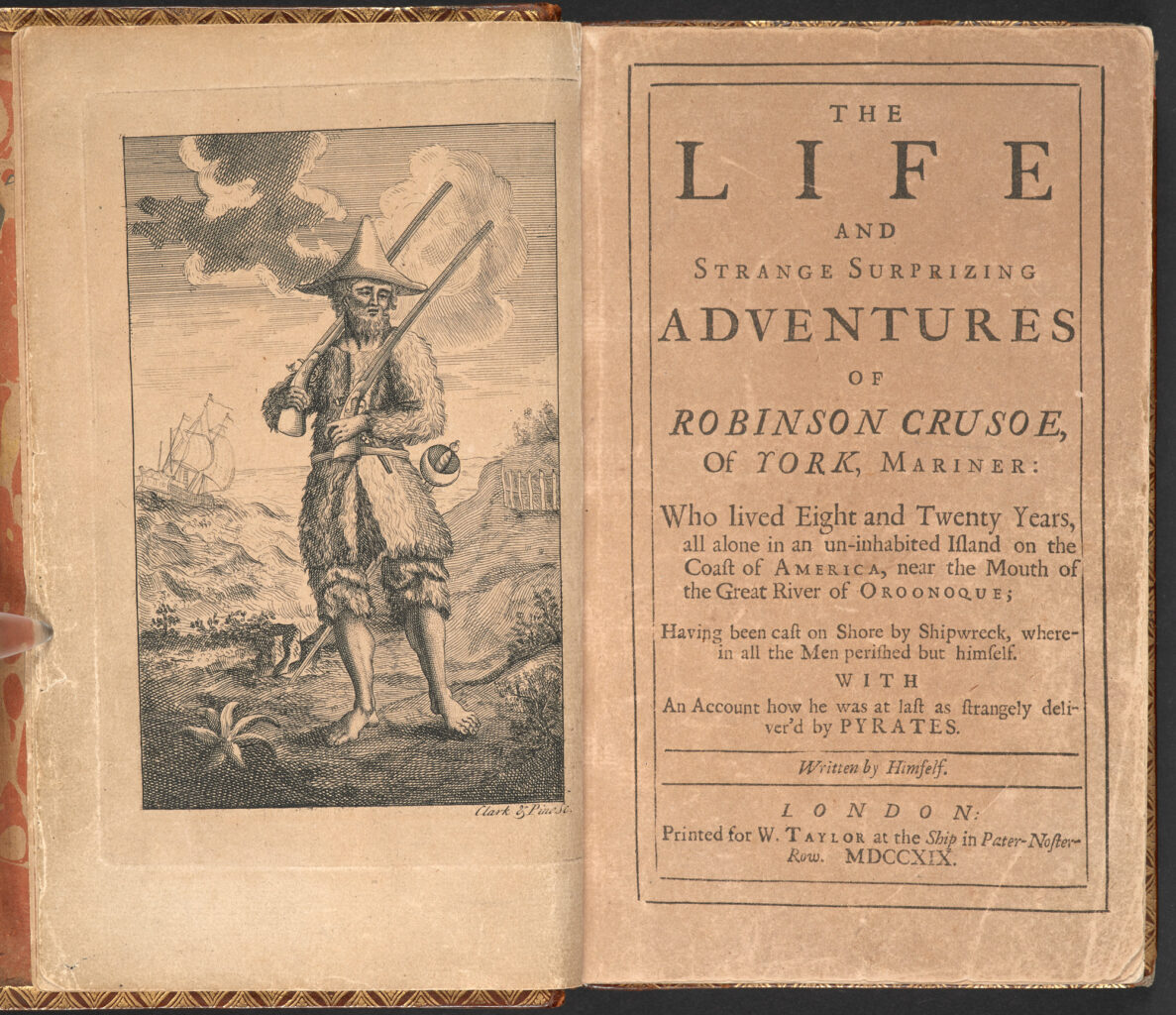
The book is presented as the autobiographical account of the title hero who is cast-away on a tropical island near the coast of today’s Venezuela and Trinidad for 28 years. It is thought to be based on the true story of Alexander Selkirk, a Scottish castaway who lived for four years on a Pacific island off the coast of Chile. In 1966 that island was renamed ‘Robinson Crusoe Island’.
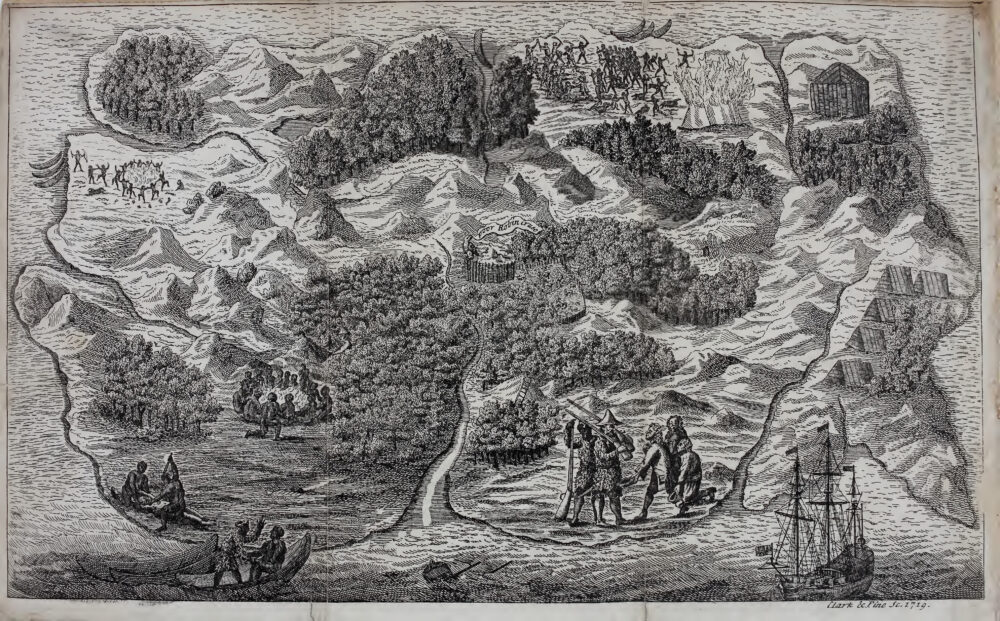
Written as a first-person narrative, the novel invites readers to identify with Crusoe’s struggles for survival on the desert island: having salvaged some provisions and tools from the shipwreck, Crusoe builds a habitation, goes hunting, tames and breeds goats, plants corn, learns to make bread and beer. But he also has to defend himself against dangers like inclement weather, loss of harvests, illness, and the cannibals that visit the island. Another source of danger to his well-being are the loneliness and despair Crusoe experiences. By keeping a diary, he creates a counterpart that he can talk to, debate decisions over, and confide his fears in. This diary is the fictional source of the novel we are reading.
Crusoe’s life changes dramatically when he saves a native prisoner from the cannibals. He names him ‘Man Friday’, teaches him English and converts him to Christianity. Originally conceived as a demonstration that peaceful co-existence with natives is possible, this relationship was later seen as a blue-print for practices of colonial subjection and exploitation. It is arguably the most controversial aspect of Defoe’s novel today. In the sequel Farther Adventures, Defoe takes a critical stance on the colonial project himself: he has his protagonist explicitly reject colonialism and instead undertake a global trading journey that takes him to Asia.
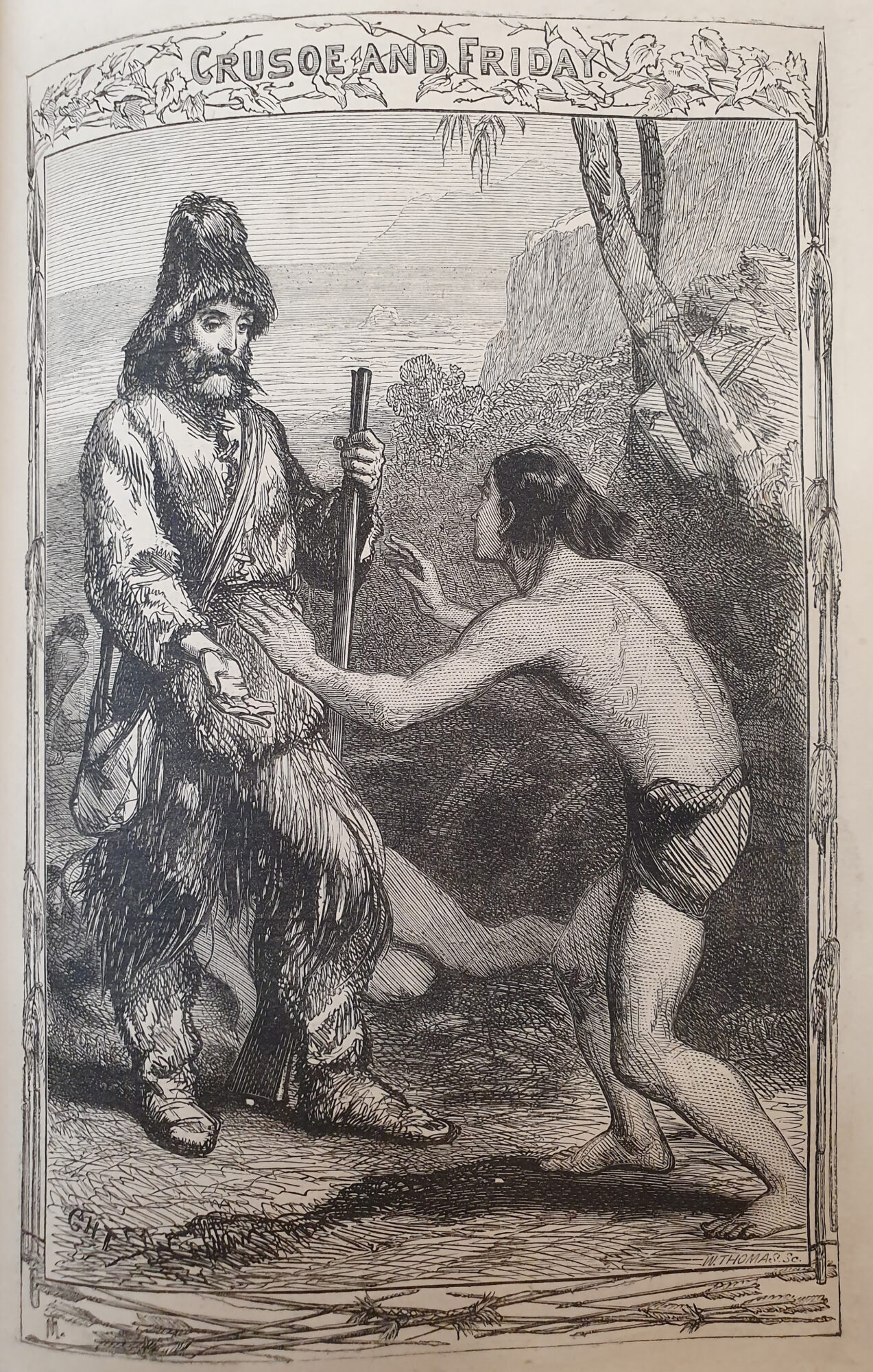
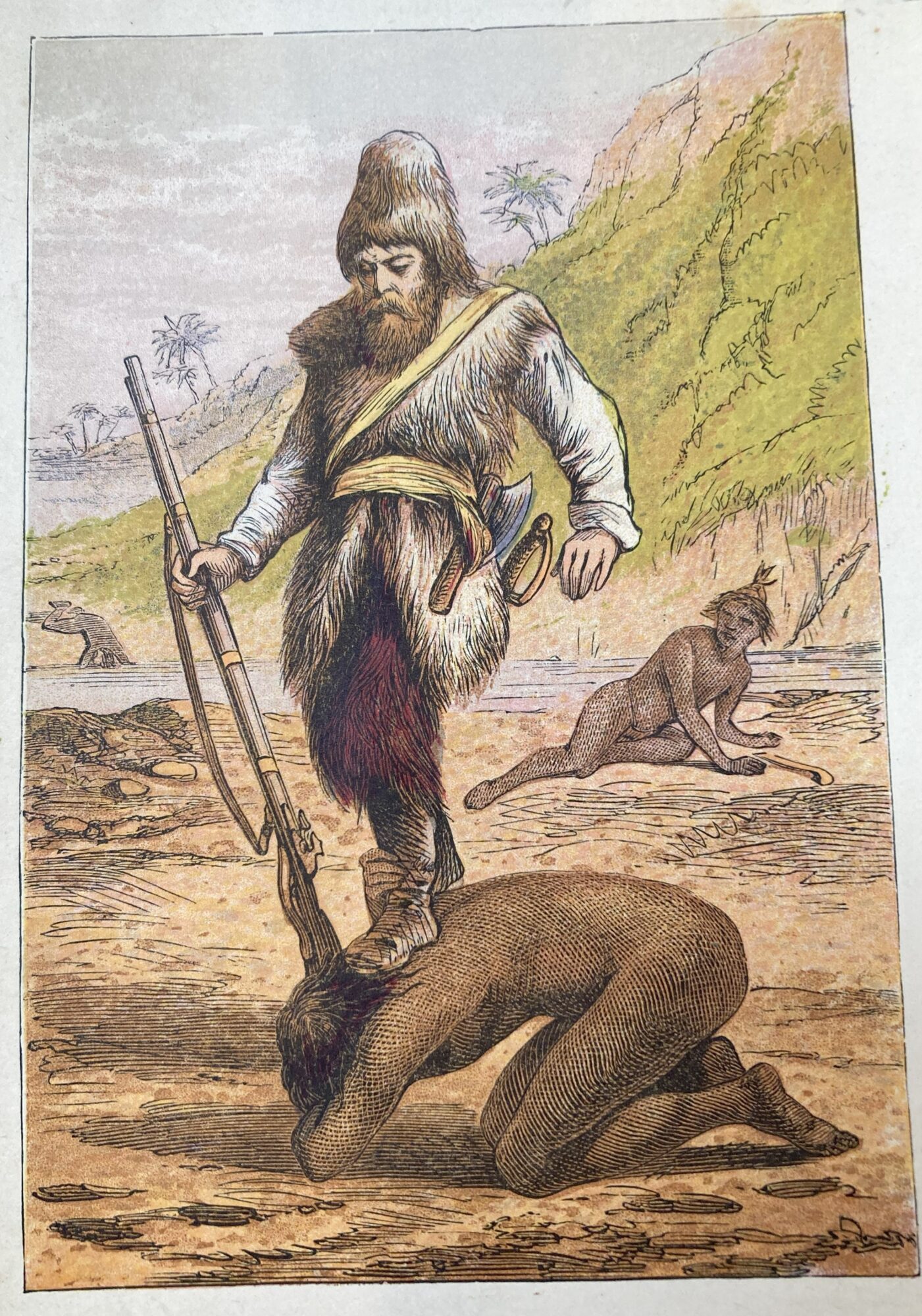
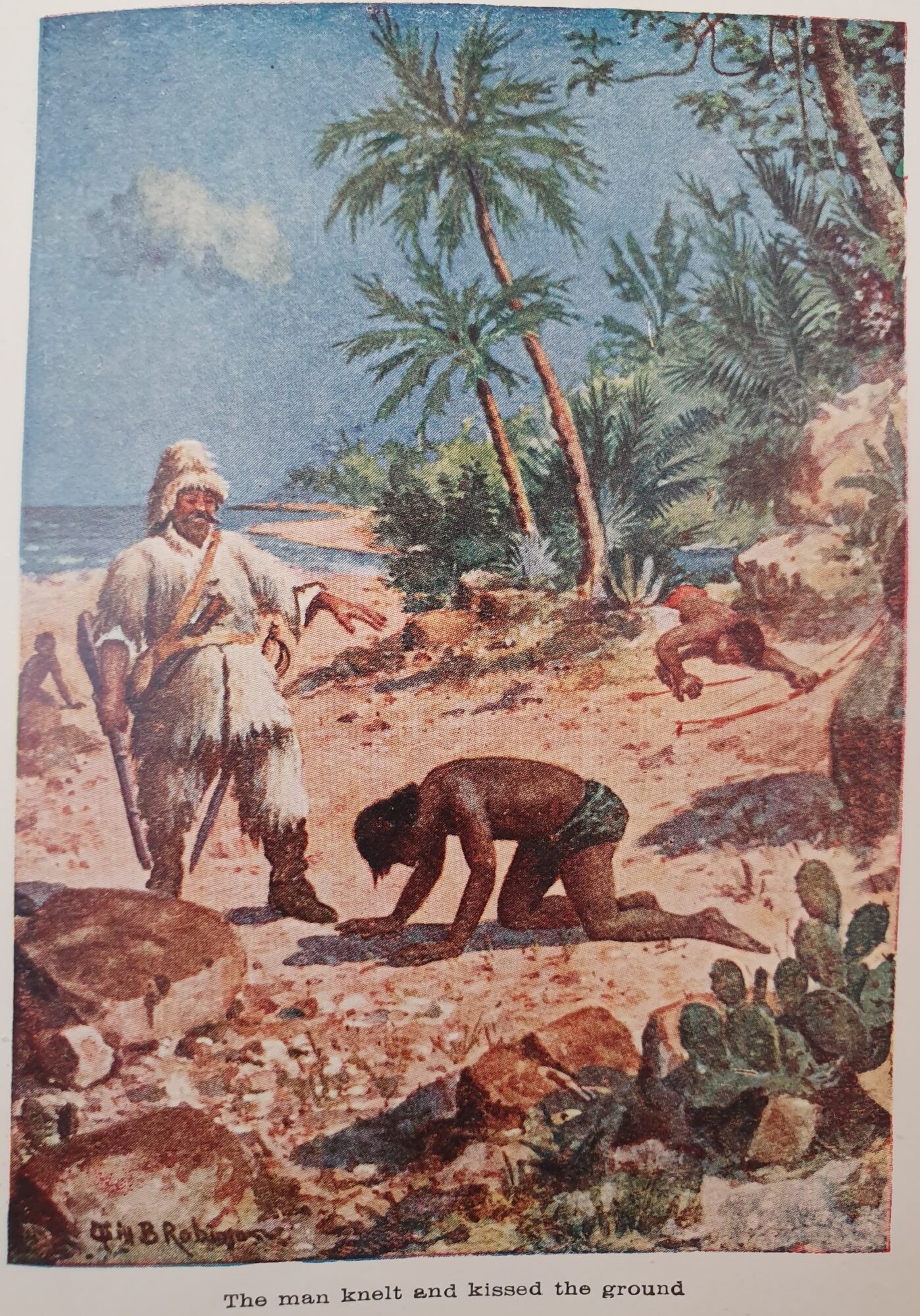
Robinson Crusoe is one of the most widely published and translated novels in the world. It has also spawned thousands of imitations and rewritings. Many of these Robinsonades are assembled in the Robinson-Library.
Text: Isabel Karremann
